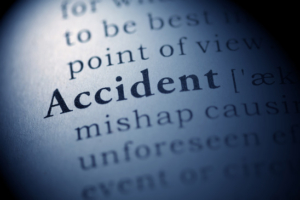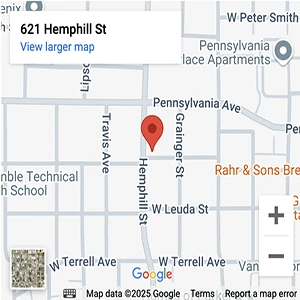Longview Daycare Injury Lawyers
 If your child was injured while at daycare, the Cooper Law Firm are daycare injury lawyers in Longview, Texas who understand how frightening and challenging this time must be for you. It’s a parent’s worst nightmare to learn that his or her child has been hurt. It is even more infuriating if your child was hurt at a daycare where you trusted that your child would be safe. When parents entrust their children’s care to a daycare, they expect a certain level of attention and peace of mind. It can be devastating to learn that your child has been seriously injured at a daycare, and even more disturbing if you learn that your child’s injuries were due to the negligence or neglect of a daycare worker. Parents expect that their children will be safe when they drop their children off at a daycare. Daycare centers have a responsibility to address any hazards in play areas or learning areas that could pose a risk to children. Daycare workers also have a duty to hire workers who will be responsible and vigilant in order to prevent daycare injuries. If your child has suffered an injury at a daycare, you may have the right to seek damages from the daycare center where your child was injured. The daycare center may have insurance from which you may be able to make a claim and you may also have a right to sue the daycare center itself for any damages not covered by insurance. The Cooper Law Firm is a daycare injury firm in Longview, Texas that works with parents who have been devastated as a result of a daycare’s negligence or neglect. Daycares Must Meet Minimum Standards The Texas Department of Health and Family Services publishes minimum guidelines that daycare centers must meet. These standards set minimum guidelines that daycare centers must follow in order to ensure that children are safe and well cared for. What are some basic guidelines that daycare centers must meet?
If your child was injured while at daycare, the Cooper Law Firm are daycare injury lawyers in Longview, Texas who understand how frightening and challenging this time must be for you. It’s a parent’s worst nightmare to learn that his or her child has been hurt. It is even more infuriating if your child was hurt at a daycare where you trusted that your child would be safe. When parents entrust their children’s care to a daycare, they expect a certain level of attention and peace of mind. It can be devastating to learn that your child has been seriously injured at a daycare, and even more disturbing if you learn that your child’s injuries were due to the negligence or neglect of a daycare worker. Parents expect that their children will be safe when they drop their children off at a daycare. Daycare centers have a responsibility to address any hazards in play areas or learning areas that could pose a risk to children. Daycare workers also have a duty to hire workers who will be responsible and vigilant in order to prevent daycare injuries. If your child has suffered an injury at a daycare, you may have the right to seek damages from the daycare center where your child was injured. The daycare center may have insurance from which you may be able to make a claim and you may also have a right to sue the daycare center itself for any damages not covered by insurance. The Cooper Law Firm is a daycare injury firm in Longview, Texas that works with parents who have been devastated as a result of a daycare’s negligence or neglect. Daycares Must Meet Minimum Standards The Texas Department of Health and Family Services publishes minimum guidelines that daycare centers must meet. These standards set minimum guidelines that daycare centers must follow in order to ensure that children are safe and well cared for. What are some basic guidelines that daycare centers must meet?
- Daycare centers must clearly outline the roles that caretakers should play in the center. Responsibilities should be clearly outlined.
- If a child is injured or if a situation arises where a child could be unsafe, daycare centers have a responsibility to inform parents. Even if a child’s injuries are minor, daycare centers have a responsibility to tell parents about their children’s scrapes and bruises.
- If children have allergies, staff must be informed of any allergies and an emergency plan should be put in place to address any allergic reactions.
- Daycare centers should have clear procedures for releasing children to parents, procedures for handling emergencies and injuries, and procedures for notifying parents.
- Daycare centers should also notify parents about the menu and food their children will receive and they should also notify parents about activities that children will participate in.
- Daycare centers must have insurance and must also keep detailed records that they are in compliance with all of Texas’s laws. Children’s records, training of staff, infant feeding instructions, contact information for parents, and procedures should be readily available. If a daycare has a playground area, a checklist for maintaining the playground should also be available.
- Information about daycare center employees, training, and licensing should be available. Caregivers must be at least 18 years old and have a high school degree or equivalent.
- Childcare centers are responsible for training workers. Individuals responsible for caring for children must receive at least 30 hours of training each year. Childcare center workers should be trained in CPR and first aid.
- The daycare center must meet requirements regarding staff to staff-to-children ratio. The required ratios will depend on the ages of the children.
These are just some of the requirements that daycare centers must meet. Daycare centers must also meet specific requirements for each age group in their care. For example, daycare centers that care for infants will need safe cribs, strollers, and playpens, while daycare centers that care for school-age children will need to provide safe age-appropriate activities. If your child was injured at a daycare center, an investigation into whether the center met Texas’s minimum requirements will likely take place. If the daycare center didn’t meet minimum requirements, you may be entitled to sue the center for damages. The Cooper Law Firm is a daycare accident law firm in Longview, Texas that may be able to assist you if your child was injured at a daycare center. Playground Injuries at Daycare Centers  According to the Centers for Disease Control, every year approximately 200,000 children are injured in playgrounds. Playground injuries can be serious. Common injuries include concussions, fractures, dislocations, amputations, and internal injuries. The CDC reports that the annual cost of playground injuries is an estimated $1.2 billion each year. Daycare centers that have playgrounds have a special responsibility to ensure that children are safe. What are some things daycare centers can do to ensure that children remain safe? According to the CDC, playgrounds should at the least have a soft material that can break a child’s fall. If the playground has higher areas or climbing areas, there should be railings and safety measures taken to prevent accidental falls. Any hazards like broken equipment, defective swings, or hot slides should be addressed to prevent injuries. These are just some of the risks that playgrounds at daycare centers can pose to children. Proper supervision from adults is also essential to prevent injuries. If your child was hurt in a daycare center playground, you may have the right to seek damages for your child’s medical care and injuries. The Cooper Law Firm are daycare accident attorneys in Longview, Texas who can help you make a claim if your child has been hurt. Seek Justice Today If your child has been hurt in a daycare center, you may only have a limited amount of time to seek damages for your child’s injuries. The Cooper Law Firm are daycare injury lawyers in Longview, Texas who understand how devastating this time might be for you and your family. Contact our firm today to learn more about your rights and options under the law.
According to the Centers for Disease Control, every year approximately 200,000 children are injured in playgrounds. Playground injuries can be serious. Common injuries include concussions, fractures, dislocations, amputations, and internal injuries. The CDC reports that the annual cost of playground injuries is an estimated $1.2 billion each year. Daycare centers that have playgrounds have a special responsibility to ensure that children are safe. What are some things daycare centers can do to ensure that children remain safe? According to the CDC, playgrounds should at the least have a soft material that can break a child’s fall. If the playground has higher areas or climbing areas, there should be railings and safety measures taken to prevent accidental falls. Any hazards like broken equipment, defective swings, or hot slides should be addressed to prevent injuries. These are just some of the risks that playgrounds at daycare centers can pose to children. Proper supervision from adults is also essential to prevent injuries. If your child was hurt in a daycare center playground, you may have the right to seek damages for your child’s medical care and injuries. The Cooper Law Firm are daycare accident attorneys in Longview, Texas who can help you make a claim if your child has been hurt. Seek Justice Today If your child has been hurt in a daycare center, you may only have a limited amount of time to seek damages for your child’s injuries. The Cooper Law Firm are daycare injury lawyers in Longview, Texas who understand how devastating this time might be for you and your family. Contact our firm today to learn more about your rights and options under the law.






